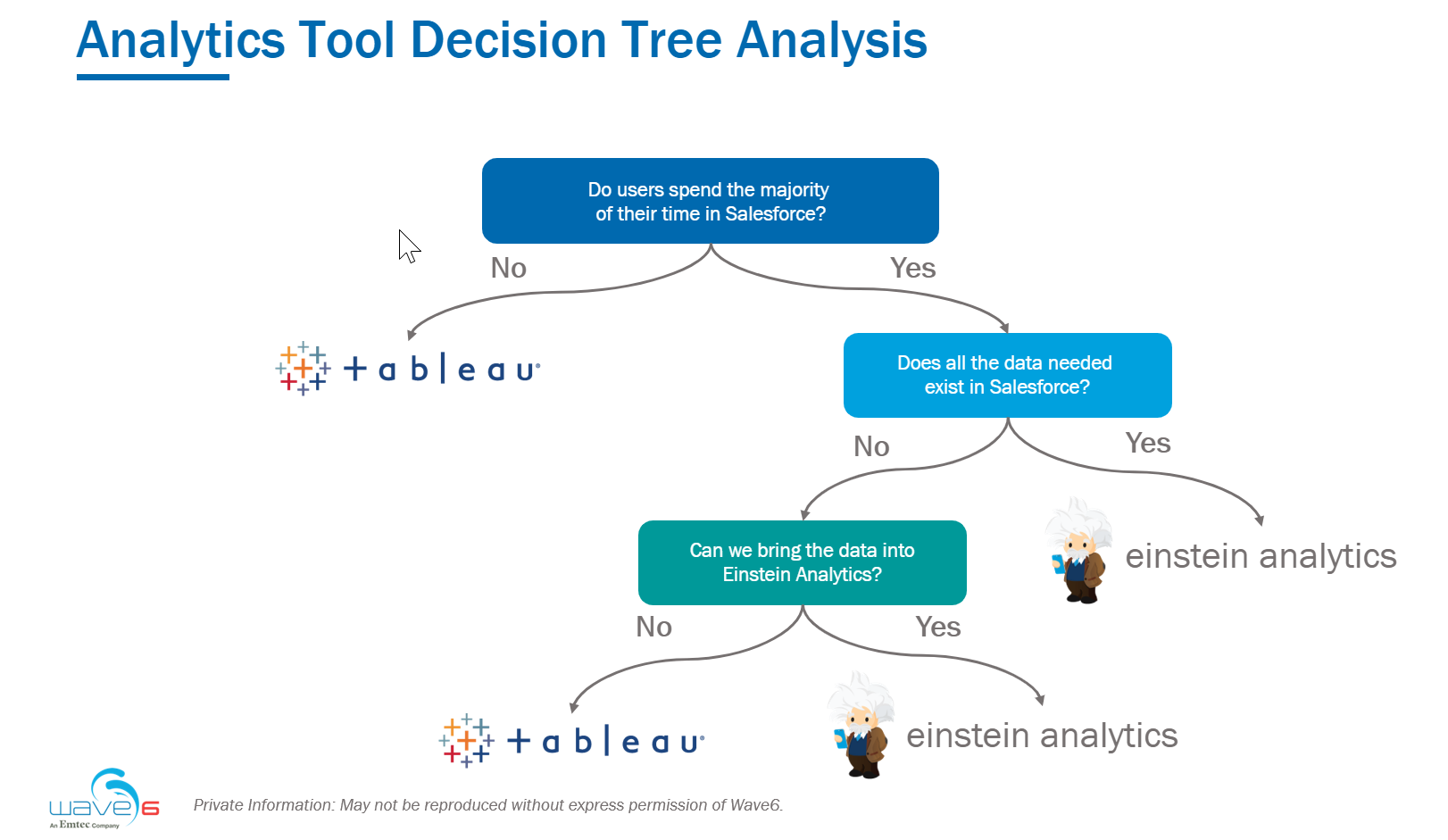07.08.20 By Bridgenext Salesforce Team

The importance of data and analytics for modern organizations is no longer up for debate. Every day, organizations capture and store increasing volumes of data. That raw data then needs to be transformed into meaningful analytical insights that can be used to make data-driven business decisions. There is no shortage of analytical tools to choose from.
You have likely heard about Tableau and Einstein Analytics – two powerful analytical products currently offered by Salesforce. And you may be asking yourself, “What’s the difference? How do I choose between these two products?” While a final decision involves a thoughtful analysis, we have put together a straightforward guide to help guide you along the path toward a final decision.
First, let’s take a high level overview of these two products, starting with Tableau. Tableau is a powerful analytics platform that excels in providing fast adoption at scale across all skill sets in order to drive business value. It’s an intuitive product that allows organizations to integrate data from a variety of cloud-based or on-premise data sources in order to generate powerful data visualizations.
Einstein Analytics is also a powerful analytical tool that allows organizations to integrate and transform data from a variety of cloud-based sources, including a live integration with Salesforce. Using these integrations, users can create and view powerful visual analytics and predictive insights, as well as take action on data from within the tool. Einstein Analytics is native to the Salesforce CRM platform, so it can inherit the Salesforce security model and also comes with a variety of industry and role-specific apps and templates to jump-start the data visualization and predictive analytics process.
Tableau and Einstein Analytics seem to serve primarily the same purposes, and there is a lot of overlap in functionality. So, how do you know which one is “best” for your organization? While there may be specific features that play into your decision (like Einstein Analytics’ use of AI to guide data preparation or Tableau’s robust mapping capabilities), we recommend asking a series of questions:

You can see that in deciding between Tableau vs Einstein Analytics, the primary issue is not where the data comes from, but where the user lives. After all, what use are analytical insights if your users are reluctant to log into a tool to view them.
For some organizations, Tableau and Einstein Analytics can be complimentary purchases. Einstein Analytics provides predictive and machine learning capabilities that can be integrated with your Tableau dashboards. Also, some organizations benefit from allowing their Salesforce users to view interactive dashboards in Einstein Analytics where they can take action on records, while users in other departments want access to analytics that is not powered by Salesforce data. In these situations, it makes sense to strategically acquire licenses for both products to meet the needs of your users and allow them to work most effectively.
Want to learn more? Let’s connect.